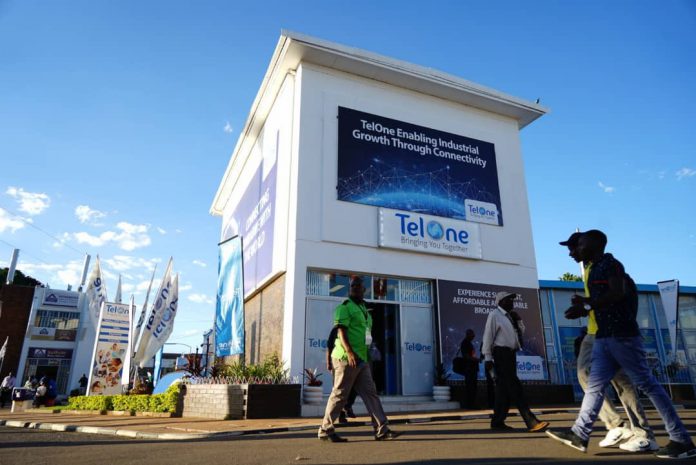Tel One’s digital transformation applauded by city

Minister of State for Harare, Oliver Chidawu, has lauded telecommunications giant TelOne for constructing a cutting-edge digital infrastructure, which he says is critical to unlocking the nation’s growth targets as outlined in the National Development Strategy 1. (NDS1).
Chidawu spoke during a tour of the TelOne Call Centre, Data Centre, and National Operations Centre, which began with a demonstration of the company’s digitalisation ambition at Runhare House in Harare.
Through the data centre, TelOne offers a one-stop-shop cloud data centres solution. It is a centralised location where large amounts of data is collected, stored, processed, distributed and accessed.
“As you are probably aware, NDS 1 is an economic blueprint that is expected to guide national development strategies and harmonise developmental efforts between 2021 and the year 2025. Harare Province, unlike other Provinces, does not have access to agricultural and mineral resources that help anchor the economy. Consequently, our residents have fewer opportunities to participate in the primary and extractive industries of the economy. However, Harare, a metropolitan area, is home to many professionals who provide goods and services to players in other industries,” Chidawu said.
“The digital infrastructure provided by TelOne and other players in the Information Communication Technology (ICT) industry is a crucial enabler for various businesses and endeavours by people resident in the Province. It creates and sustains employment within the Province. In light of this, we are truly proud of the world-class service provided by TelOne, which has truly distinguished itself in the ICT sector. We stand ready to support TelOne whenever called upon to do so in our joint endeavour to continuously improve the Province and Zimbabwe’s ICT landscape.
“NDS1 has various key ICT related objectives and aspirations that we must all work to achieve. The country intends to have internet access at the village level by 2030 by extending the fibre optic backbone and last-mile connectivity. The targeted internet penetration rate by 2025 is 75.42 per cent. Government has developed various strategies aimed at increasing ICTs usage, increasing investment in the sector, increasing compliance with ICT regulations and increasing customer satisfaction and protection in the use of ICTS amongst others.”
The TelOne national operations centre also plays a crucial role in enhancing cyber security as the centre monitors its gateways at all borders.
“We are quite excited to have a first-hand view of the TelOne Data Centre which also goes a long way in facilitating interaction between the government and citizens. As we strive for a digital economy, the government, businesses and more people go online, thus increasing the need for data centres,” he added.
“May I commend Telone for helping spur the digital economy in the Province, and I would also like to pay tribute to Chipo Mutasa (TelOne managing director) for steering the ship so well over the years. Telone has developed steadily into a world-class service provider under her leadership. May I also encourage our local authorities and indeed other stakeholders to develop and deepen their working relationships with TelOne as we all strive for a digital economy and the conveniences that it brings.”
TelOne director Mutasa said the digital infrastructure aligns with the company’s vision of not leaving anyone behind by 2023 and continuing to provide the most affordable internet service in the country.
“Our vision is to have a digitally-enabled society by 2023, and we stand firm and confident of achieving that feat as we count down to just a year from now,” Mutasa said.






